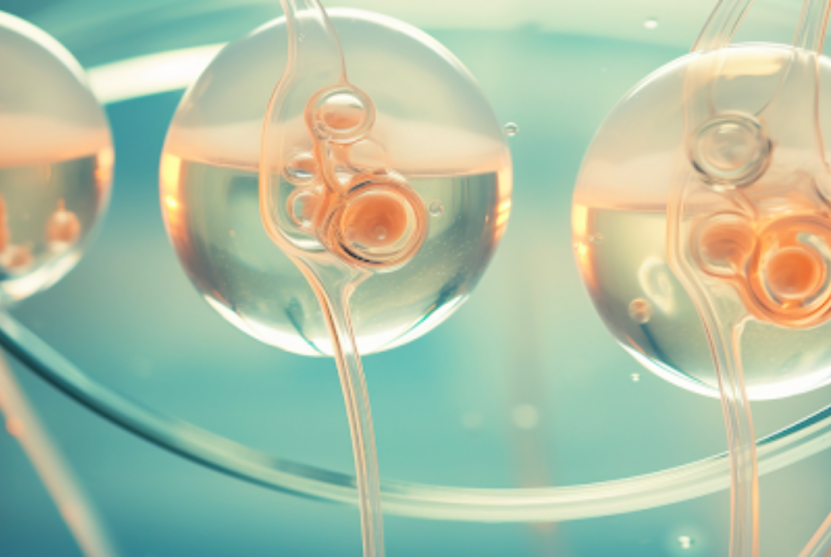January 15, 2024
Male Infertility Challenges & Treatments

Male infertility is a significant concern that affects a substantial number of couples worldwide. Infertility is generally defined as the inability to conceive after a year of regular unprotected intercourse. While both men and women can contribute to fertility issues, male infertility plays a crucial role in approximately 40-50% of infertility cases. Understanding the challenges and available treatments for male infertility is vital for couples seeking to build their families.
Challenges Of Male Infertility
Several factors contribute to male infertility, ranging from genetic and hormonal issues to lifestyle and environmental factors. One of the primary challenges is the impaired production or function of sperm. Sperm abnormalities, such as low sperm count (oligospermia), poor sperm motility, and abnormal sperm morphology, can significantly reduce fertility. Island Reproductive Services is committed to offering education regarding male infertility challenges and treatments. We have experience testing men for fertility as well as treating men with various medical therapies to help optimize sperm.
Hormonal Imbalances
Hormonal imbalances, particularly disruptions in the production of testosterone and other hormones, can also impact sperm production. These are common sources of problems. Conditions such as varicocele, a swelling of the veins that drain the testicle, can contribute to elevated testicular temperature, affecting sperm production and function. Additionally, genetic factors, such as chromosomal abnormalities or gene mutations, can lead to male infertility.
Lifestyle Factors
Lifestyle factors can play a crucial role in male fertility. Smoking, excessive alcohol consumption, drug use, and obesity have been linked to reduced sperm quality. Environmental factors, including exposure to toxins and pollutants, can also contribute to male infertility.
Diagnostic Approaches
Accurate diagnosis is the first step in addressing male infertility. An evaluation first involves a thorough medical history. Semen analysis is an essential test that assesses the quantity and quality of sperm. Hormone and or genetic testing may also be appropriate once the initial evaluation has been completed. Other diagnostic techniques, like scrotal ultrasound, can provide insights into structural abnormalities leading to male infertility.
Treatments for Male Infertility
Several treatment options are available to address male infertility, depending on the underlying cause. Here are some common approaches. Men with low sperm counts may be placed on medicines such as clomid, letrozole, or hcg. We may recommend to some men that they freeze sperm samples if a long-term problem is anticipated.
Lifestyle Modifications
Adopting a healthy lifestyle can significantly improve sperm quality. This includes maintaining a balanced diet, regular exercise, avoiding tobacco and excessive alcohol, and managing stress.
Assisted Reproductive Technologies (ART)
In cases where natural conception is challenging, ART procedures can be employed. Intrauterine insemination (IUI) involves placing sperm directly into the uterus, while in vitro fertilization (IVF) with ICSI involves combining sperm and eggs outside the body before implanting the embryo into the uterus.
TESA
TESA involves the surgical extraction of sperm from the testicle. TESA-obtained sperm can then be used in combination with IVF/ICSI to achieve pregnancy. TESA can be used for men with obstruction of sperm release. The procedure can also be used in men without obstruction who do not produce enough sperm through ejaculation to lead to pregnancy.
Varicocele Repair
Sometimes, the blood vessels surrounding the testicles can be swollen and enlarged. The increased blood flow can affect the sperm quality. Most men with varicoceles do not require surgery, but a subset of men may benefit from the surgical repair of these varicoceles.
Donor Sperm
In cases where the male partner is unable to produce viable sperm, the couple may choose to use donor sperm for fertility treatments.
Vasectomy Reversal
During a vasectomy, the pathway of sperm from the testicle is blocked. However, sperm production continues. The reversal procedure can help re-establish the flow of sperm through the urethra. If successful, this can help achieve pregnancy without the use of IVF
Male infertility poses significant challenges for couples aspiring to start a family. However, with advancements in medical science, many couples can overcome these challenges through a variety of treatment options. At Island Reproductive Services, we are experts in providing the care that your situation requires. For more information or questions regarding male fertility, check out our website or give us a call at (718) 948-6100.

